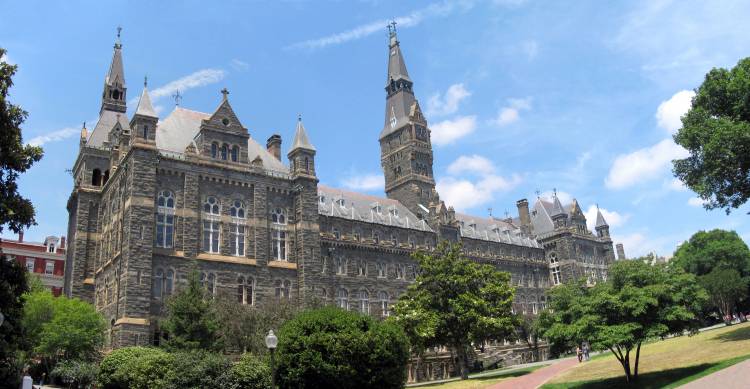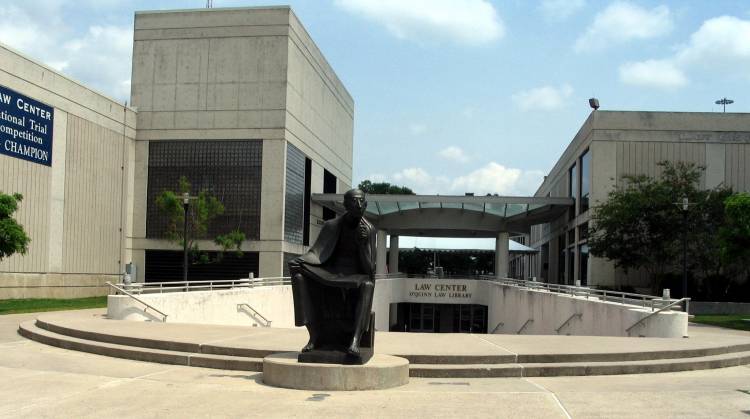The healthcare and medical industries are constantly in flux. From the US’ enactment (and current dismantling) of the Affordable Care Act to the emergence of new biomedical devices, those who practice health law must stay on top of many social, ethical, and regulatory changes.
Perhaps as a response to these shifts in the healthcare landscape, in the past years, a number of law schools have launched specialized LL.M. programs in Health Law or Medical Law. For instance, in 2015, Hofstra University, in New York, began an Online LL.M. in Health Law and Policy; more recently, Canada’s University of Ottawa launched a specialized LL.M. in Health Law, Policy and Ethics.
Outside the US, the University of Manchester offers a strong Healthcare Ethics and Law LL.M. both on-campus and as a distance learning program, and in 2015 the University of Toronto began an LL.M. with a Concentration in Health Law, Ethics and Policy.
And those law schools offering tried-and-true LL.M. programs in Health Law are constantly adapting their curriculums to respond to challenges that law professionals in the field face.
“We try to make sure that our curriculum is always evolving,” says Sarah Roache, who directs Global Health Law LL.M. at Georgetown University Law Center, “either in response to changes in healthcare law, or even in advance of that, if we can.”
 Right now, for example, the school offers three courses that cover the Affordable Care Act, as well as the challenges that have been made to that law since the Trump administration took office.
Right now, for example, the school offers three courses that cover the Affordable Care Act, as well as the challenges that have been made to that law since the Trump administration took office.
As well as that, this year the school added a new class that deals with public-private partnerships in healthcare, in light of an increasing number of governments working towards universal health coverage.
“That can’t be achieved within existing governmental resources,” explains Roache. “So [governments] look to partner with not-for-profit foundations, such as the Bill and Melinda Gates Foundation, or the private sector, in some cases.”
“We are trying to equip our students with the skills that they need to work in the future of global health which we understand will, for better or worse, involve a lot of public-private partnerships.”
Beyond that, Health LL.M. programs tend to cover a mix of topics, including regulatory issues, compliance, and social issues. This means that those studying in a program might be able to choose from courses covering health insurance fraud, biotechnology, access to healthcare, food and drug law, international human rights law, medical malpractice, and more.
Some programs also include internships, which can give students hands-on experience in this dynamic field.
See the Top 10 LL.M.s for Health Law
At Saint Louis University School of Law (SLU), for example, Health Law LL.M. students spend an entire semester on internships, either in Saint Louis itself or in Washington DC.
“Students are placed in a federal agency doing healthcare regulation and they work there full-time for an entire semesters’ worth of credit,” says Robert Gatter, Director at the university’s Center for Health Law Studies.
Health LL.M.s attract a variety of candidates, with diverse backgrounds
Something that makes studying health law so dynamic is the way an LL.M. can bring together a diverse mix of practitioners from both the legal and healthcare fields.
In a typical Health Law LL.M., for instance, participants might include healthcare professionals that are looking to get up to speed on current laws, as well as lawyers who want to expand their practice into the medical field.
 Director of the University of Houston Law Center’s LL.M. in Health Law Michael Ewer says that as well as a number of nurses with varying levels of experience, “we’ve had physicians in the program and most recently I had a very talented specialty pharmacist in the program.”
Director of the University of Houston Law Center’s LL.M. in Health Law Michael Ewer says that as well as a number of nurses with varying levels of experience, “we’ve had physicians in the program and most recently I had a very talented specialty pharmacist in the program.”
Georgetown Law’s Global Health Law LL.M. saw a record 25 students begin the program this fall, but many Health Law LL.M.s tend to be much smaller than that – at the University of Houston, there are only a small handful of Global Health Law LL.M. students each year, and they share classes with the JD students. It’s the same at Saint Louis University School of Law; Health Law LL.M. participants sit in classes next to JD students, allowing them more networking opportunities and a broader range of experiences to connect with.
Health Law LL.M.s: Career prospects
For those who hope to land jobs in health law post-study, an exciting mix of roles await them in the healthcare sector, as well as in regulatory bodies, global governance and advocacy.
Robert Gatter says that many SLU students are able to leverage their internships to land jobs; over the last 10 years, every student on SLU’s Health Law LL.M. who wanted to find a job in health law after graduating landed one.
University of Houston Law Center’s LL.M. in Health Law Director Michael Ewer says that alumni from his program include a senior ethicist working at a hospital, while others run hospital legal departments.
At Georgetown, Sarah Roache says some students arrive in Washington DC for the program with an eye to staying and finding work in a health regulatory body in the city post-study.
Alternatively, “they might come from ministries of health outside the US, to build and improve their skills and then go back to their positions,” says Roache. “Some are coming from law firms, say from food and drug or life sciences practices, with a view to doing the same thing.”
According to the school, graduates of the Global Health Law LL.M. are currently working in a diverse range of organizations, including NGOs, academic institutions, government, and the private sector, among others.
“We have graduates working at the Campaign for Tobacco-Free Kids, a wonderful organization here in Washington DC with global reach.” Others, she says, work for the World Health Organization.
“I think a lot of our students are mission-driven,” says Roache. “They want to work in advocacy and make improvements to population health through law and policy at that really high level.”
Images:
- Thermometer on medical pills by Pixabay CC0 (cropped)
- Georgetown University by Gtownsfs CC BY 2.0
- University of Houston Law Center by MC Lewis CC BY 2.0










